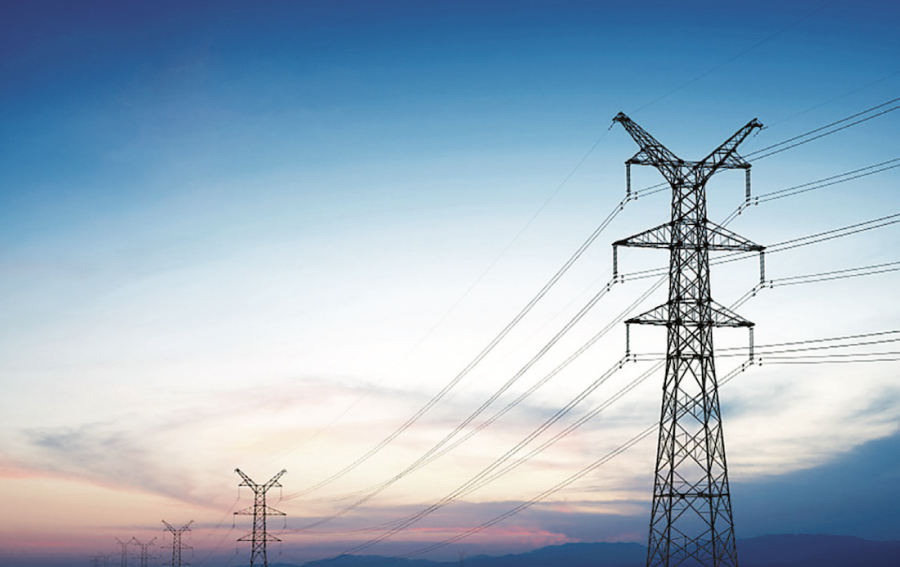Columns
Rethinking electricity laws for business
Healthy competition should be encouraged as it usually benefits energy consumers.
Saroj Koirala
After over a decade of deliberations, the Electricity Bill 2023 has been reintroduced in the federal Parliament. The much-awaited bill is important because it proposes several provisions that seek to eliminate lacunas in Nepali electricity law by providing an explicit legal basis to commence major overdue reforms. As electricity is the lifeblood of modern civilisation, it commands a vital role in the economy, but Nepal has strategised the growth of its economy around its electricity generation potential. This makes it crucial for the bill to be thoroughly analysed from business dimensions and for provisions to be incorporated so that the private sector can be mobilised to optimally contribute to the electricity industry and business-doers in Nepal are allowed to reap tangible benefits.
The bill prescribes development and operation of generation plants through competition. However, it waives the necessity of competition for entities with a majority government investment. In theory, healthy competition in the electricity sector should be encouraged as it benefits consumers. Regardless of who is involved in the generation, distribution, transmission or trade of electricity, the bottom line must be affordable and reliable. Exempting significant players from competition not only undermines efforts to make electricity affordable, but also discourages the active participation of the private sector.
Dial down on royalty
The Electricity Act 1992 prescribed royalty on hydropower generation. However, this bill proposes to extend the scope of royalty to all kinds of electricity generations—solar, wind and others—as well as transmission of electricity. While some royalty in hydropower generation is warranted owing to the restriction it poses on the usage of water resources for other economic activities, imposing a royalty on electricity from sources like solar, wind and cogeneration may not be in Nepal’s interest. Energy from solar, wind and cogeneration is needed to diversify the energy mix when hydropower dominates Nepal’s energy landscape. Their promotion will lead to a healthier balance of energy sources, thereby contributing to Nepal’s energy security. Secondarily, imposing royalties ultimately increases the cost of electricity, which impacts the bankability of these projects. Also, imposing a royalty on transmission will hinder the development of the electricity industry when transmission projects need to be bankable for the private sector to step in, which is the need of the hour. Finally, the overall impact of the imposition of royalty will lead to an increment in the electricity tariff, thus disadvantaging businesses and general consumers.
While hydropower projects have been traditionally developed under the build-own-operate-transfer (BOOT) model, the bill also proposes the same for transmission and distribution infrastructures. This means that at the end of the licence period, their assets will have to be handed over to the government free of charge. But simply because the assets are owned by the state may not guarantee maximum benefit from them. Most rivers are being diverted for hydropower generation purposes, and a need may arise for the state to re-strategise water usage after 30-50 years. Therefore, the government assuming ownership of hydropower assets at the end of the licence period is crucial.
However, for transmission and distribution infrastructures, eliminating the BOOT model and letting the developer operate those facilities in perpetuity will provide a more permanent role for the private sector in the electricity industry, and allow the industry to continually benefit from their operational efficiency, innovation and competition. Also, if a licensee doesn’t have to give away its assets free of cost, it will not be pressured to charge a higher return on investment. This may lead to some reduction in electricity costs, which in turn benefits businesses and consumers. Transmission and distribution businesses are usually highly regulated, to the extent that any major capital expenditure will first have to be approved by the regulator beforehand. If their performance falters to the point of hurting the consumers and the economy, the regulator can intervene.
Strengthen the regulator
A strong and competent regulator is necessary for a competitive and functional electricity sector. In Nepal, licensing of electricity-related business is reserved by the state agency, while the not-so-old regulatory commission has been tasked with tariff regulation and some other roles in furthering sectorial reforms. However, the proposed Electricity Bill seeks to strip the regulator of some responsibilities and doesn’t empower it for anything else even when the bill explores new grounds in electricity. From a doing-business standpoint, a competent and independent regulator is the best way to ensure a level playing field and properly mobilise the private sector.
Therefore, distribution of regulatory powers between multiple agencies creates issues in compliance, duplication and confusion in jurisdiction and inefficiency in service delivery besides making the dispute resolution process irregular. In many states with a robust regulatory regime, the regulator’s responsibility begins right from forecasting future electricity needs and includes determining how much power is to be sourced and licensing electricity-related business activity to source necessary power. Stripping the regulator of one or all of these duties may prevent the regulator from making a fundamental impact on the electricity sector. Therefore, this bill should be focused on consolidating the regulatory powers to make regulation consistent and simple for businesses to operate.
To surmise, this bill emphasises expanding the scope of royalty, exercising state ownership of assets and retaining government control as essential measures for achieving national prosperity. However, such measures may not be the best way forward if they do not optimally benefit the country in general. So, the lawmakers must analyse the bill’s implication on the government’s funds, efficiency of operation of the electricity industry, efficiency of service delivery, size of government workforce, promotion of employment, competition, ease of doing business and impact on foreign reserves and propose necessary amendments accordingly.
Rethinking the issues elaborated upon will be a significant step in that direction. Instead of providing a limited role for the private sector, the bill should treat it as a partner in the development of the power sector, thus allowing Nepal to reap the benefits of its efficiency, resourcefulness and versatility. But an empowered and competent regulator is part of the deal. Lawmakers also must be mindful that the law must make space for our businesses to actually benefit from the bountiful hydropower resources so that they can use that electricity to obtain competitive business for their products. This means prescribing provisions that systematically tend to lessen the cost of electricity. Providing a level playing field, eliminating excessive royalty and simplifying and strengthening regulation will be important for such a systematic attempt. Only then may the Electricity Bill truly orient the nation towards prosperity.




 9.7°C Kathmandu
9.7°C Kathmandu















